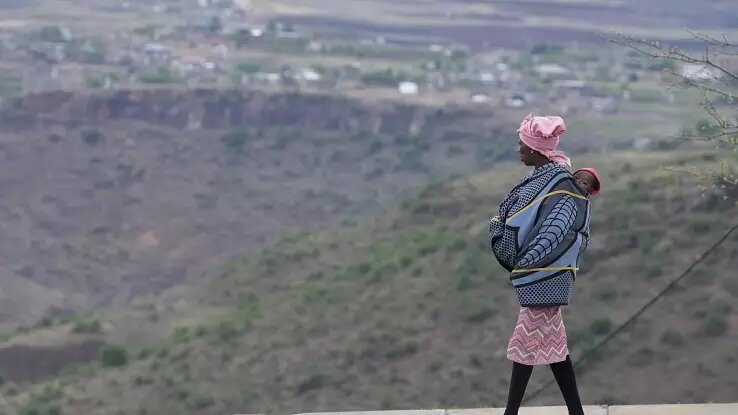After the general elections on Friday (Oct. 7), the inhabitants of Thaba Bosiu in rural Lesotho anticipate that the nation will enter a new era of news.
Over the previous ten years, coalitions have ruled the southern African nation; no prime minister has completed a full five-year term.
Insecurity and greater life possibilities were important election issues for the 1.5 million persons who were registered to vote.
Makamohelo Hlehlisi bemoaned, “People are getting killed here in Lesotho in great numbers, youngsters are being harassed, being raped, and our old ladies are getting killed in big numbers.”
“I want to see my party, if they become the next ruling one, to look into these things, and also create jobs for the youth, because the youths are not working. We are waiting for too many things”, the woman added.
The economy of the country known as the Kingdom in the Sky is built on small-scale industries, animal husbandry, and subsistence farming.
The World Bank estimates that the percentage of people living in poverty will stay at 36% in 2021 (based on $2.15 per person per day).
Voters might choose candidates from more than 50 different parties to bring about the change they want to see.
“We just want changes, there should be peace around our nation, there should be growth, and we should all live together happily, those are the things we need”, villager Makamohelo Hlehlisi said.
On Friday, voting ended at 1500 GMT, and counting began immediately after. The announcement of the results is anticipated for next week.
Fragmented parliament
The All Basotho Convention is in charge of the current administration.
Mathibeli Mokhothu, the leader of the Democratic Congress, Lesotho’s second-largest party, and Sam Matekane, a millionaire rumored to be the nation’s richest man who could be a dark horse, according to observers, were Nkaku Kabi’s (ABC) primary rivals.
There isn’t a clear favorite, and observers don’t see much hope for breaking the nation’s protracted political impasse.
A mixed electoral method is used to choose the 120-member parliament; 80 seats are elected directly by people, while the remaining 40 are allocated proportionally.
A rule prohibiting politicians from changing parties within the first three years of their terms was introduced by the outgoing parliament, but it was not passed.





